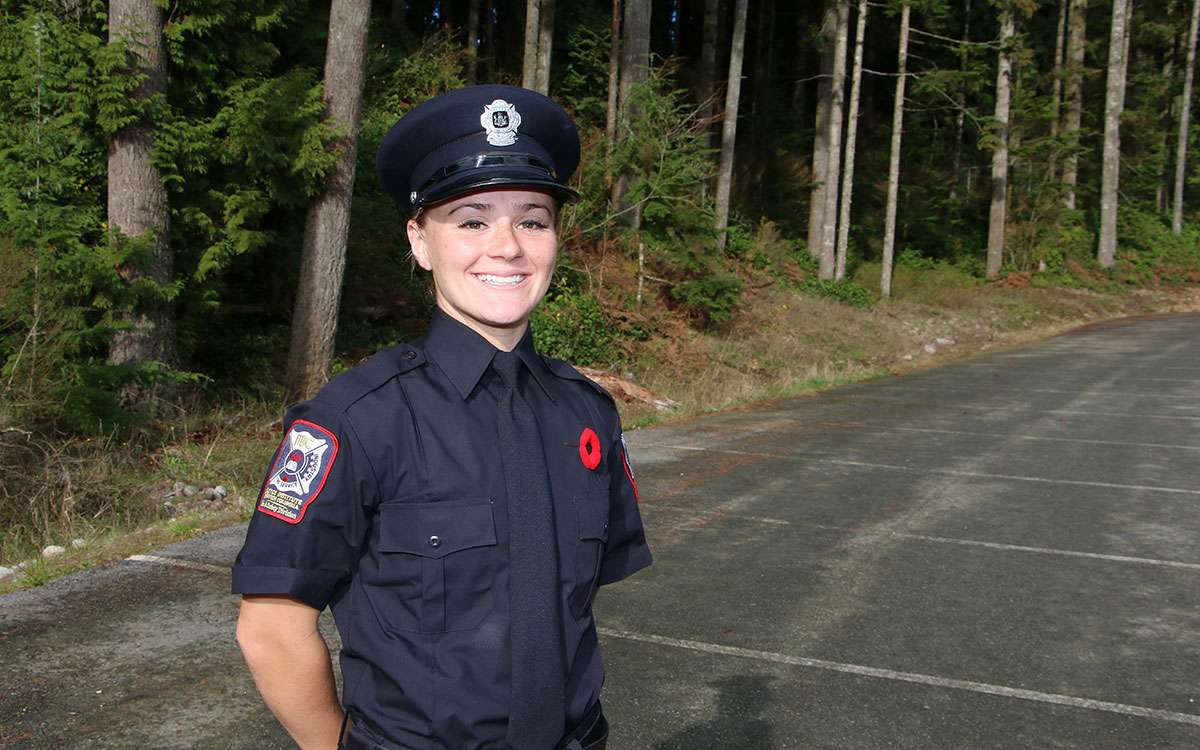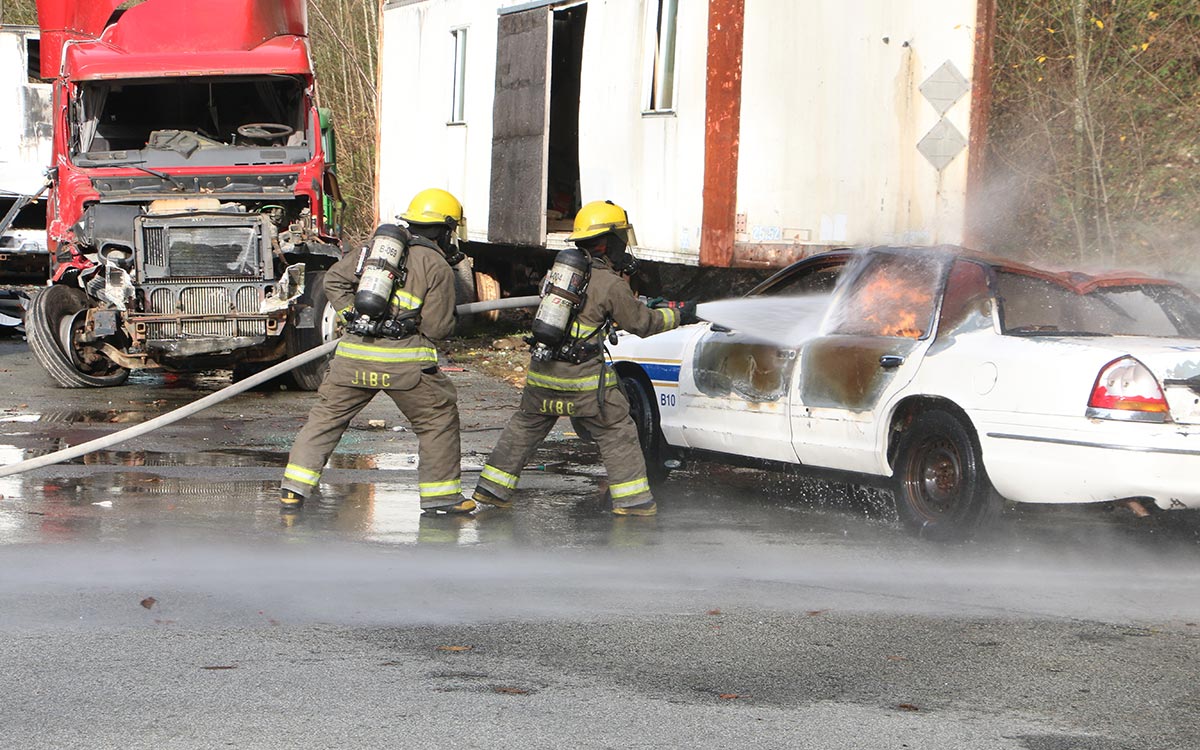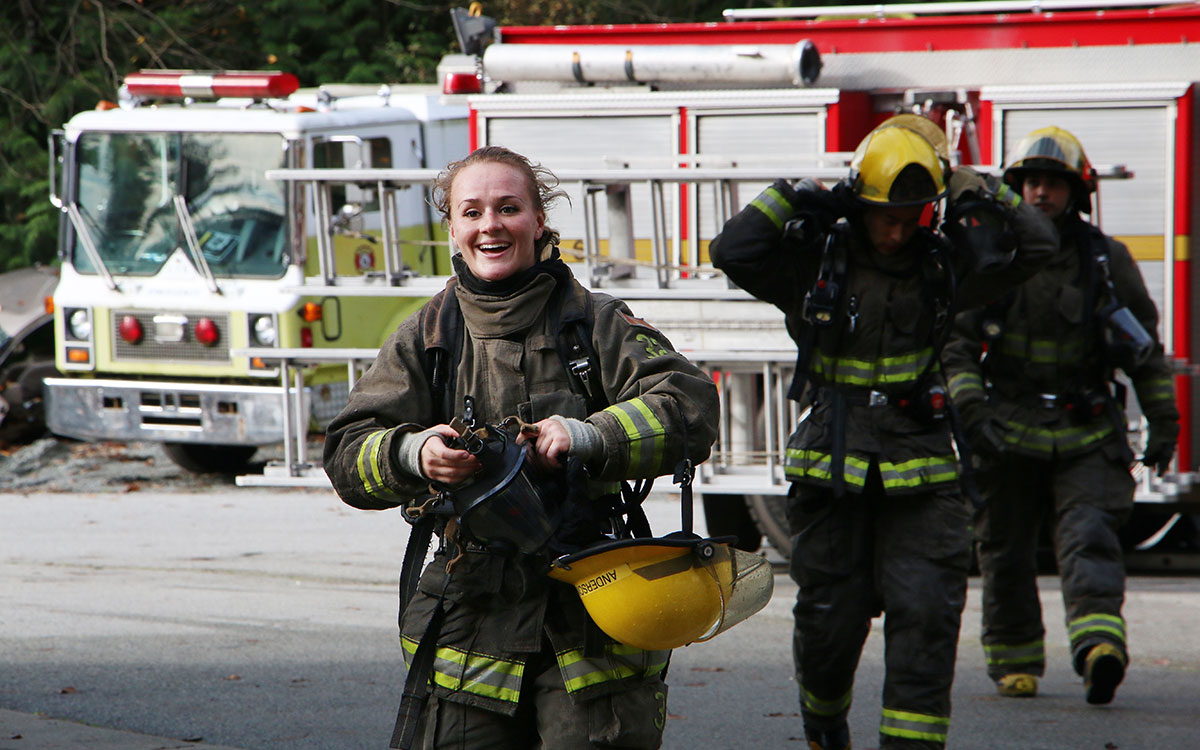Lindsay Anderson’s path towards a career as a firefighter really started with insight gained during more than a year spent as a spa coordinator.
“It was a lot of desk work and I realized I wasn’t happy doing that,” recalled Lindsay, 26.
The Ontario native had come out to the West Coast, to Victoria, to continue representing Canada in women’s rugby, playing and training full-time with Rugby Canada’s national women’s sevens team, with which she was capped to compete at an international tournament in the US.
After deciding the spa gig was not for her, Lindsay switched to a landscaping job that allowed her to work outdoors. In between, she volunteered with Saanich Search and Rescue, putting in the required 150 hours to be fully certified in ground search-and-rescue techniques.
“I love being physical and challenged. A couple calls out and I really realized how much fun it was being on a team and searching and helping. I really felt like I was making a difference.”
So she turned to her father, a veteran firefighter in Ontario, and expressed an interest in following in his footsteps. Her dad, in turn, talked to his fire chief who recommended the Fire Fighting Technologies Certificate (FFTC) program at the Justice Institute of British Columbia (JIBC).
“It was recommended and I thought it would be best to take the fire chief’s recommendation. It would be silly of me not to,” she said with a laugh.
Lindsay would go on to win The JIBC Foundation’s Jon Baillie Memorial Award, given to the student selected for outstanding performance in academic and practical skills, leadership and professionalism. The recipient was chosen by the training staff in collaboration with students.
Other pre-employment firefighter training programs elsewhere can be as short as two weeks in duration. But in an interview just a few hours before her FFTC graduation ceremony, Lindsay was positive she made the right choice.
Everything, we've done so many times. Repetition. I feel confident in my skills and I don't think we would have been able to do that if we went somewhere else
"If I’m paying money for something like this, for what I want to do as a career in my life, I wanted it to be the best. Even though it may be more expensive, in my mind I saw this program as not only two months practical experience I saw it as the full five months of online and then practical,” she said. “I couldn’t wrap my head around how other programs could do it all in two weeks. There’s just no way.”
The FFTC program takes place at JIBC’s Maple Ridge campus equipped with props and facilities that can simulate a variety of fire situations, including a specially-treated, three-storey concrete building that can be set on fire repeatedly.
The two months of hands-on training was a huge benefit, she said.
“We all just got to do things over and over again, like catching a hydrant, being the nozzle man, interior attack. Everything, we’ve done so many times. Repetition. I feel confident in my skills and I don‘t think we would have been able to do that if we went somewhere else.”
Instructors emphasized that there are many different ways to reach the same outcome. They then gave the students a safe, supervised environment to figure it out and practice making their own decisions in an emergency situation.
“I expected to be told what to do all the time,” Lindsay said. “Then when we started doing scenarios they would tell us what we need to do, as in ‘ventilate the window’ or ‘control the fire,’ but they wouldn’t tell us how to so we would actually have to use the tools in our toolbox.”
Perhaps most importantly, the scenario-based training opportunities also gave her the chance to figure out how to adapt techniques for her own personal situation.
“Being short I had to find a lot of my own ways to do certain things. And I don’t think I would have been able to do that if I had gone two weeks,” she said. “The only pointer I got about that was everyone has to do it their own way. Every truck is going to be different, every department is going to be different, and you’re going to find your own way to do things, which was really encouraging.”
For more information visit the Fire Fighting Technologies Certificate program page.


